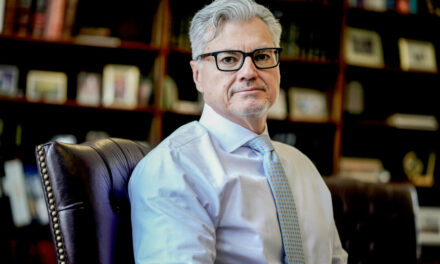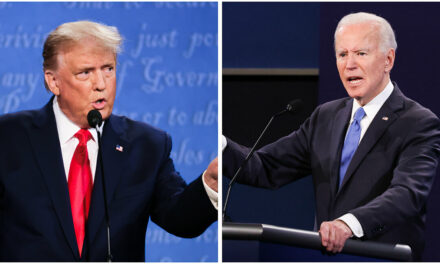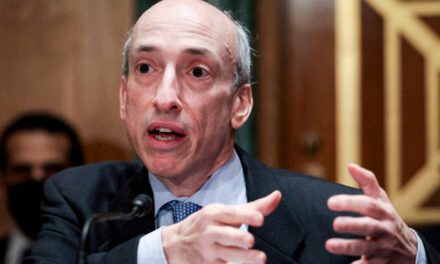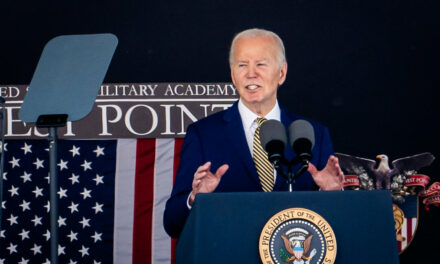We support our Publishers and Content Creators. You can view this story on their website by CLICKING HERE.
Sen. Bernie Sanders (I-Vt.) proposed a $60,000 annual national minimum wage for teachers, sending the message that if you pay them, the results will come.
None of the legislators or witnesses who spoke at the Senate Health, Education, Labor, and Pensions Committee hearing on June 20 disputed that increased pay is a solution for recruiting and retaining certified teachers during an unprecedented shortage of qualified educators across many states.
The point of contention, as some senators and witnesses noted, is whether higher teacher pay translates into student achievement at a time when most U.S. public school students are performing below grade level in reading and math.
Ranking Committee Member Bill Cassidy (R-La.) said federal spending on public education, factoring in post-COVID emergency relief funds, is at its highest levels ever. He pointed to a chart showing a 97 percent increase in a Chicago public school budget as average reading scores in that district plummeted by 63 percent and math scores by 78 percent.
Mr. Cassidy said that the average student spends more than 15,000 hours in the classroom before graduating from high school.
“If they are not learning, what are they doing?” he asked. “I’m not sure throwing more money at the problem is the solution.”
Mr. Cassidy said school districts across all demographics are also struggling with chronic student absenteeism and discipline issues.
Mr. Sanders cited statistics to provide a different perspective. He said 44 percent of teachers leave the profession within five years, mainly because of low pay. The average starting annual salary for teachers is less than $40,000, and in 36 states, teachers supporting a family of four or more qualify for public assistance.
He said teachers across the country work second jobs as service workers, while four hedge fund managers in New York City made more money last year than the combined pay of the nation’s 120,000 kindergarten teachers.
“Maybe there’s something wrong with our national priorities,” Mr. Sanders said, adding that his Pay Teachers Act “will benefit every school district in our country.”
William Kirwan, vice chairman of Maryland’s Accountability and Implementation Board, said that, in his state, higher teacher pay has indeed translated into results. In addition to boasting some of the highest test scores in the nation, in international comparisons, the state was equal to the top-performing K-12 education in China and Canada.
Maryland provides free full-time preschool instruction to all children. After six years, certified teachers within K-12 districts can make upwards of $100,000 annually, Mr. Kirwan said.
Robert Pondiscio, a senior fellow at the American Enterprise Institute and a former fifth-grade teacher, said there’s no evidence at the national level that higher pay translates into better student achievement.
He took an 80 percent pay cut to teach in the South Bronx. In his current profession, Mr. Pondiscio has researched public school districts across the country and found shoddy curriculums, deteriorating facilities, disruptive student behavior, and social-emotional learning requirements that force teachers to perform double duty as therapists or social workers.
“Bluntly, we are asking teachers to do too many things; to be able to do them well,” Mr. Pondiscio said. “No profession sends more people poorly prepared to work than education. “
Gemeal Keyes, an elementary school special education teacher in Philadelphia, said most people don’t understand the challenges aspiring educators face to earn the required credentials, nor do they appreciate how districts find creative solutions to recruit and retain teachers.
Over 18 years, Mr. Keyes worked his way up from a bus attendant to a “para-professional” teacher to a fully certified teacher—“all for a salary of about $45,000.”
If not for the teacher’s union negotiating a clause that allowed him to work full-time while completing the required college degrees, he said he would not have realized his career goal, even though he still works a second job. He implored lawmakers to support home-grown teacher training initiatives such as Philadelphia’s.
John Arthur, a middle school teacher in Salt Lake City, Utah, and the state’s 2021 Teacher of the Year, said he could not make a living in a profession he loves and help so many children in the low-income community he serves if his spouse did not have a better-paying job. He challenged lawmakers to look at qualitative evidence—successful, happy children—instead of charts and statistics.
“The majority of American parents do not want their children to become teachers,” Mr. Arthur said. “The No. 1 solution to address the issues we face must be increasing teachers’ salaries.”
Nicole Neily, president and founder of the Parents Defending Education advocacy organization, said school districts have an allocation issue, not a resource issue—as evidenced by the current frenzy as districts struggle to spend down their emergency post-COVID federal relief grants before the looming deadline.
Ms. Neily criticized school districts for hiring high-paid administrators to police diversity, gender issues, social-emotional learning, and other progressive agendas at a time when plummeting test scores and teacher retention remain problematic.
Gifted and talented programs are being cut from school budgets, “and brilliant students are discouraged from getting ahead,” she said.
“The issues parents care about are not the ones being discussed today.”

 Conservative
Conservative  Search
Search Trending
Trending Current News
Current News 







